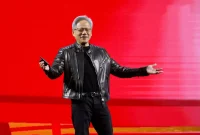OpenAI Completes Recapitalization, Restructures as For-Profit Entity
On Tuesday, OpenAI announced the successful completion of its recapitalization, marking a significant shift in its operational framework. The AI research organization has transitioned into a for-profit corporation, embedded within a non-profit foundation, following a protracted legal process that met considerable resistance from co-founder Elon Musk.
New Corporate Structure
The newly established framework features the non-profit OpenAI Foundation maintaining legal oversight over the public benefit corporation known as OpenAI Group. This configuration allows the for-profit entity to pursue funding opportunities and acquisitions without the limitations that previously applied to OpenAI’s non-profit status. The Foundation will retain a major equity stake in OpenAI Group while also appointing its board of directors.
In a blog post, Brett Taylor, chairman of OpenAI, emphasized the importance of aligning technological advancements with public interests. He stated, "The close of our recapitalization provides us the opportunity to advance the boundaries of AI, accompanied by a revised corporate structure that aims to benefit society as a whole."
Ownership and Investment Breakdown
Under the new arrangement, the OpenAI Foundation is set to own 26% of the for-profit division, with options for additional shares contingent upon the company’s growth trajectory. Microsoft, an early backer, will hold an estimated 27% stake in OpenAI Group, valued at approximately $135 billion. The remaining 47% of equity will be distributed among various investors and employees.
Moreover, a separate statement from Microsoft highlights that this deal extends Microsoft’s intellectual property rights concerning OpenAI’s AI models until 2032. In a significant stipulation, if OpenAI declares it has reached its ambitious goal of achieving artificial general intelligence (AGI), the organization will be required to undergo verification by an independent panel of experts.
Background and Legal Challenges
Prior to this recapitalization, OpenAI functioned solely as a non-profit organization, bound by stringent equity restrictions that became increasingly challenging as the company’s fundraising efforts intensified. Notably, in April, SoftBank announced a groundbreaking $30 billion investment that hinged on OpenAI’s successful transition to a for-profit model. Reports this past Saturday indicated that the final tranche of this funding had been processed, suggesting a pivotal moment for the company’s corporate restructuring.
Throughout this process, several legal challenges were raised, particularly by Elon Musk, who had previously offered to acquire OpenAI for $97.4 billion. Additionally, state attorneys general from California and Delaware launched inquiries regarding the restructuring. Taylor remarked on the constructive influence of these discussions, asserting, "We made several changes as a result of those discussions, and we believe OpenAI—and consequently the public we serve—are better for them."
Community Engagement
In light of this significant organizational change, CEO Sam Altman has organized an open livestream event featuring chief scientist Jakub Pachocki. The event is scheduled to start at 10:30 a.m. Pacific Time and aims to address questions from the public regarding the recent developments and future direction of OpenAI.
This recapitalization represents a pivotal change for OpenAI, positioning it to capitalize on new opportunities while remaining committed to its foundational mission of responsible AI advancement.




